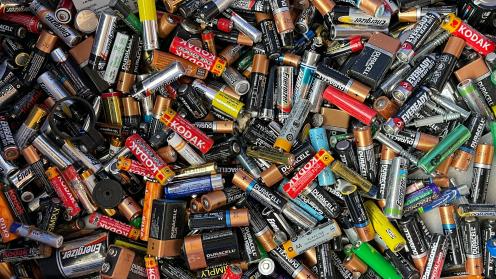Recycling used items containing persistent organic pollutants (POPs)—such as the flame retardants used in manufacturing kitchen utensils, computer casings, furniture coverings, and children’s toys—keeps POPs in circulation, posing ongoing threats to human health and the environment. So, the question of what level of POPs content can be accepted is crucial, as it defines when certain wastes become “hazardous waste” and should not be recycled. Parties to the Basel Convention on Thursday discussed ways to determine what those levels should be.
On Thursday morning, the Technical Matters Contact Group approved a questionnaire format for collecting information on low-POPs content levels in waste. Members of a small intersessional working group will now pilot-test the format for one or two types of POPs, so as to determine the usefulness of the approach. The results will be used to advise the next meeting of the Conference of the Parties to the Basel Convention, COP 17, on whether all parties should be asked to provide such information.
The contact group also scrutinized draft technical guidelines on environmentally sound management (ESM) of waste batteries other than waste lead-acid batteries. Delegates debated whether the terminology “used batteries” and “waste batteries” can be used interchangeably, as some countries’ national legislation may do, in order to protect communities from improper disposal.
They agreed to: make a clearer distinction in the text between different battery chemistries; include information on commercial collection schemes; make special note of the fire risk presented by lithium-ion batteries; and streamline the guidelines' health and safety section. On extended producer responsibility (EPR), they differed on whether to mention each party “is guided by its own national conditions” and its experience of EPR implementation.
In parallel, the Strategic Matters Contact Group met to continue discussion of improving implementation of the prior informed consent (PIC) procedure, which began on Wednesday evening. The group deliberated on harmonizing time frames for giving prior informed consent, and whether those time frames should be made legally binding, or be voluntary.
The group also debated how to address situations where there is disagreement as to whether a material counts as waste. They agreed to forward the matter to a small intersessional working group. Questions were raised about further defining the nature of the “pre-consented facility” concept—an approach that allows for waste to be exported to pre-approved waste processing facilities. This could speed up the PIC notification process but also, as some speakers noted, could reduce existing protections. Delegates also debated the use of the Basel Convention’s Article 11 (bilateral, multilateral and regional agreements) to simplify notification. An observer organization warned that “simplification” may not ensure ESM.
On Thursday afternoon, the Legal Matters Contact Group reconvened to discuss further the proposals from an expert working group for revisions to sections A and B of the Basel Convention’s Annex IV (disposal operations). The group worked through elements of the proposals in detail to identify where the expert working group could quickly resolve the group’s concerns.
All ENB photos are free to use with attribution. For this event, please use: Photo by IISD/ENB | Anastasia Rodopoulou
To receive free coverage of global environmental events delivered to your inbox, subscribe to the ENB Update newsletter.

